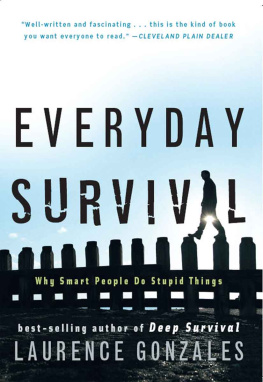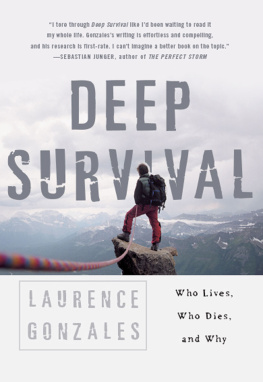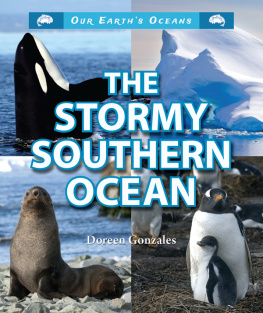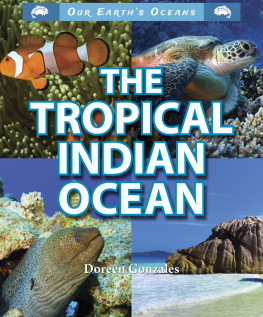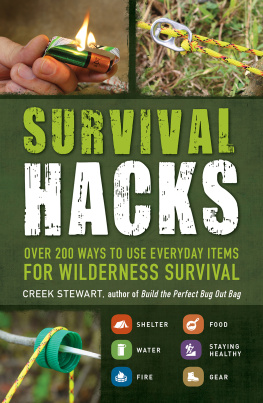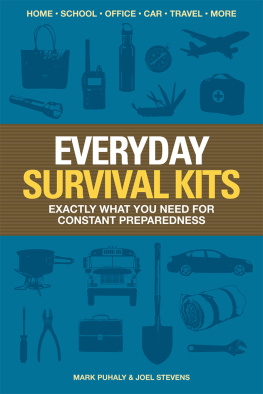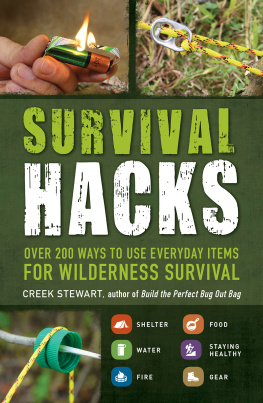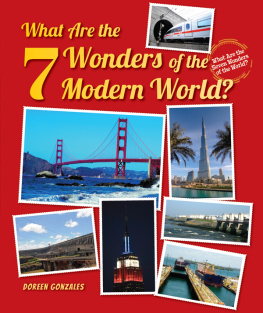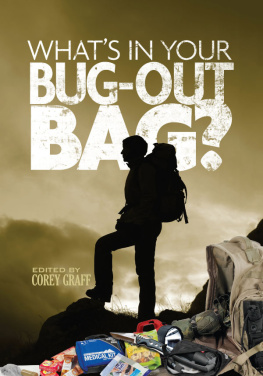W. W. NORTON & COMPANY
For information about permission to reproduce selections from this book, write to Permissions, W. W. Norton & Company, Inc., 500 Fifth Avenue, New York, NY 10110
W. W. Norton & Company, Inc.
500 Fifth Avenue, New York, N.Y. 10110 www.wwnorton.com
W. W. Norton & Company Ltd.
Castle House, 75/76 Wells Street, London W1T 3QT
The discovery of iron brought grief to men.
PROLOGUE
W hen I was finishing this book, I went to stay in a house on the Outer Banks in North Carolina so that I could work far away from the distractions of daily life. The house was on the dunes above the beach, and I could sit and write and listen to the surf as it thundered beneath my window, while the constant wind blew the tops off the waves. Out on the deck Id watch the pelicans, big and prehistoric-looking, wheel around their circuit from south to north and back again. In the angled light of afternoon, pods of dolphins leapt and dove, and children played in the waves, while I fretted about the rip currents carrying them out to sea.
When I wasnt working, I took long walks on the beach or up and down the towering dunes just to the north where the hang gliders launched not far from where the Wright brothers first took flight. Jockeys Ridge State Park has the tallest sand dunes in the eastern United States, some of them 100 feet high. But many were more modest hills, and in places they crowded together, creating networks of shadowed pathways that led into wooded areas or out onto great tumbling expanses of sea grass and live oak and even prickly pear cactus. Catbirds called from the loblolly pines, and lizards left twisted trails that looked like an ancient language scratched in the sand. More than a few times, as I hiked, contemplating some of the deeper questions in this book, I realized that I had no idea where I was. I was, in fact, lost. But the entire park is only a mile long and three-fourths of a mile wide, wedged between U.S. Highway 158 and Roanoke Sound. I knew I could find my way out.
Nevertheless, I had a hunch that this was a good place for people to find their own kind of trouble. And trouble is my specialtystudying it, writing about it, trying to understand how it happens. So I stopped a park ranger on my way out one day and asked him if people ever had to be rescued there. He just laughed. About twenty nights a year Im out here looking for someone, he said. Dobo Cox was his name, and he was a broad man with a low center of gravity, all muscle. He would be hard to knock over. In his midthirties, he had a great bald head and a naturally infectious smile behind wrap-around sunglasses. On his belt, crowded in among all the other paraphernaliacollapsible baton, mace, handcuffshe wore a Glock .45-caliber pistol, the darker side of his profession. His job was trouble, too, and he appeared to have taken every precaution to keep it from getting the better of him.
Cox went on to describe the astounding failures of mind that he had witnessed as a ranger on this tiny spit of land. He told me about a group of people hed found on top of the tallest dune in the park. They had noticed that they could see the Atlantic Ocean to the east of the park and asked him if the water to the west was the Pacific Ocean. He said he had rescued numerous people whod become lost and were unable to think through their panic and realize that they were only a short walk from a heavily traveled road (you can hear the cars). He told me that Id be surprised at the number of people who asked him how far it was between the mile markers on that road. Cox seemed to take it all with good humor, but he also seemed a bit in despair at the human condition. He said people come here suffering from what he called a vacation state of mind, where all the old rules are suspended. Referring to the numerous injuries, mostly minor, that occur on the big dune, he said, Yes, gravity still does apply here, even when youre on vacation. He said people ask him things like which side of the road to drive on. One visitor complained bitterly because the dunes were made of sand, which made them hard to climb.
I was particularly interested in talking to Cox, because I had just come from giving a talk at the Santa Fe Institute. The talk was called Intelligent Mistakes: When Smart People Do Stupid Things, and it was a brief preview of the first part of this book. It addressed behaviorssome of them my ownthat were not unlike the ones Cox was describing to me on that summer day, filled with wind and sun, on the eastern seaboard.
The Santa Fe Institute (SFI, as its called) is one of the most respected research institutions in the nation and is well known around the world. It was formed by a group of scientists, economists, and mathematicians who believe that specialization in their disciplines, while it serves a purpose, is also limiting and has perhaps gone too far. Many of them, in fact, have done serious work in one field, only to switch to something seemingly unrelated. Murray Gell-Mann, for example, won a Nobel Prize in physics. He is now researching the evolution of language at SFI. Eric Smith, another accomplished physicist, is studying the chemistry that is most likely responsible for the earliest beginnings of life. Brian Arthur, a highly respected economist, resigned his prestigious position at Stanford to do research into the evolution of technology. The policy at SFI, if you can even call it that, is to embrace everything that is interesting. The novelist Cormac McCarthy is a permanent fixture there, though Im not sure what hes doing.
The reason that SFI is relevant to the people on Coxs little preserve is that when those visitors to the dunes made their mistakesand when I made minewe were all suffering from a disorder brought on by not being broad enough in our interests, by not being curious enough about our world and our position as people or animals in it. When we arrive here on earth, where we will spend all of the time allotted to us, we are naked, helpless, and ignorant. We are in a savage state, so to speak. As children we become brilliant generalists, curious about everything. But most of us gradually become specialists in our narrow little preserves, focused only on the minutiae of our own lives. We stop learning and then, when something unexpected happens, we dont know what to do. I think we can do better.
By having a broad range of knowledge, we can more easily change the frame through which we view our world and deal better with the difficulties we will inevitably face here. It is possible to go to the Outer Banks by way of an airplane and a rental car and to arrive at a rented house, as I did, without ever really knowing where you are. I had a route in mind but no sense of place. From the house, I went up the road to the state park and wandered around in the dunes. Without a general sense of the layout, I was already lost. I hadnt bothered to find out that the piece of land I was on was a long and narrow sandbar just off the Atlantic coast. You could go north and south, but there was water to the east and west. All I had to do to remedy this was to have the desire to learn. In some sense it doesnt matter what you learn, because you never really know whats going to come in handy. Geography class in school may have seemed boring, because we had no idea what good it might do us to know that subject. The answer is that we would know that the water to the west of the Outer Banks is not the Pacific Ocean, because the Pacific Ocean is three thousand miles away. (Yes, I already knew that, but someone didnt, according to Ranger Cox.) In part, our predicament is that we evolved to be well adapted to an environment that doesnt exist anymore, at least in technical cultures. We seem to live permanently in what Ranger Cox calls a vacation state of mind, where all the old rules are suspended. In fact, most of us never knew those rules to begin with. We gradually evolved a culture that allowed us, as a people, to drop our guard. With the illusion that we have dominion over the earth, we conclude that we have nothing to fear.

